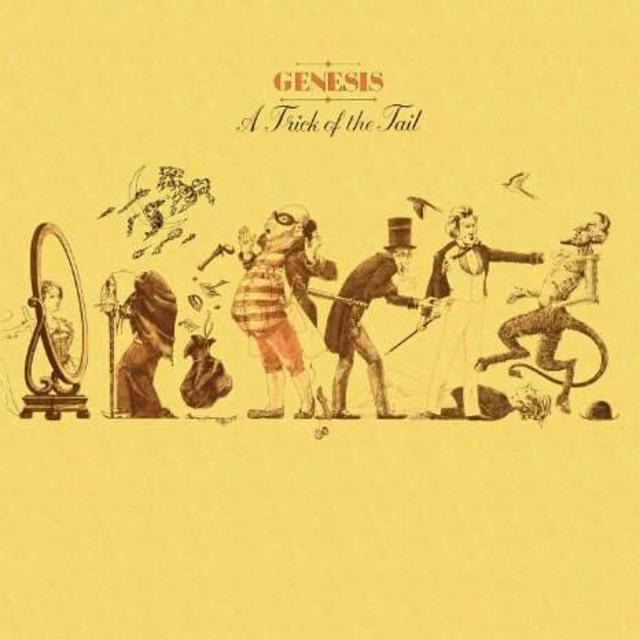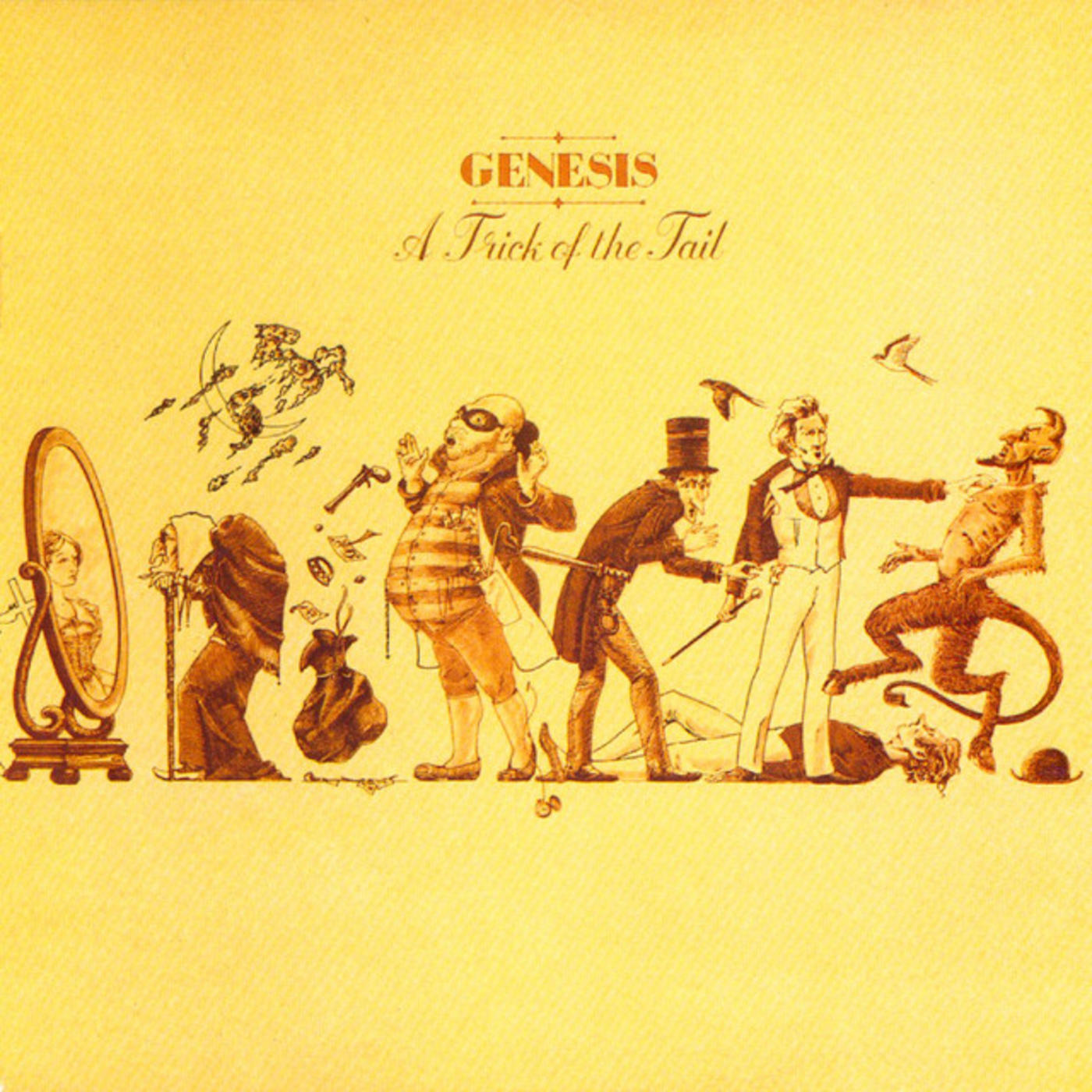Now Available: Five Different Genesis Albums on 180-Gram Vinyl

Brace yourself, Genesis fans, because the vinyl reissue campaign is rolling on, and this week you’re being presented with the opportunity to pick up five – count ‘em – five albums from the band’s back catalog on 180-gram vinyl.
You’ll remember, of course, how we excitedly told you about these particular reissues hitting CD a few weeks ago, so if you read that particular post intently, then don’t be surprised to find that there’s repetition to be found within this one. Still, just in case you were all, like, “I don’t care about the CD reissues, wake me when the vinyl comes out,” we wanted this to serve as your alarm clock…or, in other words, get your butt up and go forth to purchase the following albums:
• A Trick of the Tail (1976): Otherwise known as The One After Peter Gabriel Left, but even though this was definitely a key album in the band’s catalog, we’re not going to spend a lot of time chatting about it today because we just devoted an entire piece to its anniversary.
• Wind & Wuthering (1976): Genesis was working its way through some growing pains with this one. After Gabriel’s departure, things began to shift within the band dynamic, and the flux was particularly felt by Steve Hackett, who – not unreasonably – felt that his songwriting efforts were being given short shrift compared to those of Tony Banks. The material is still solid, particularly the opener, “Eleventh Earl of Mar,” and the Hackett / Collins collaboration “Blood on the Rooftops,” but the end was nigh for Genesis as a four-piece.
• And Then There Were Three (1978): Like the title suggests, this one’s otherwise known as The One After Steve Hackett Left, but it’s also where the tide began to turn commercially for the band, and in a very good way, indeed. The album features “Follow You Follow Me,” which provided Genesis with their first top-10 single in the UK (#7) and their first top-40 single in the US (#23), while also spotlighting the members’ individual songwriting skills, with Tony Banks contributing “Undertow” and “Many Too Many” and Mike Rutherford offering up “Snowbound” and “Deep in the Motherlode.”Okay, so Phil Collins’ contributions were all co-writes rather than individual compositions, but give the guy a break, he was singing and playing drums, too.
• Duke (1980): It’s like prog never happened! Okay, not really, but this album was definitely the line in the sand for those who preferred their Genesis to have a bit more of an experimental bent to their music. “Turn It On Again” went top-10 in the UK (#8), “Misunderstanding” went top-20 in the US (#14) and actually topped the charts in Canada, and once Duke topped the charts in the UK, there was little question that this was the direction in which Genesis would be heading for the long haul.
• Abacab (1981): The most curious thing about this album is that the band wrote an entire album’s worth of material, discarded it because the material made them feel like they’d become a caricature of themselves, and started anew. We may never know what might’ve been, but at least we know what Abacab turned out to be, and between the trifecta of the title cut, “No Reply at All,” and “Man on the Corner,” it certainly seems like they made the right decision.


